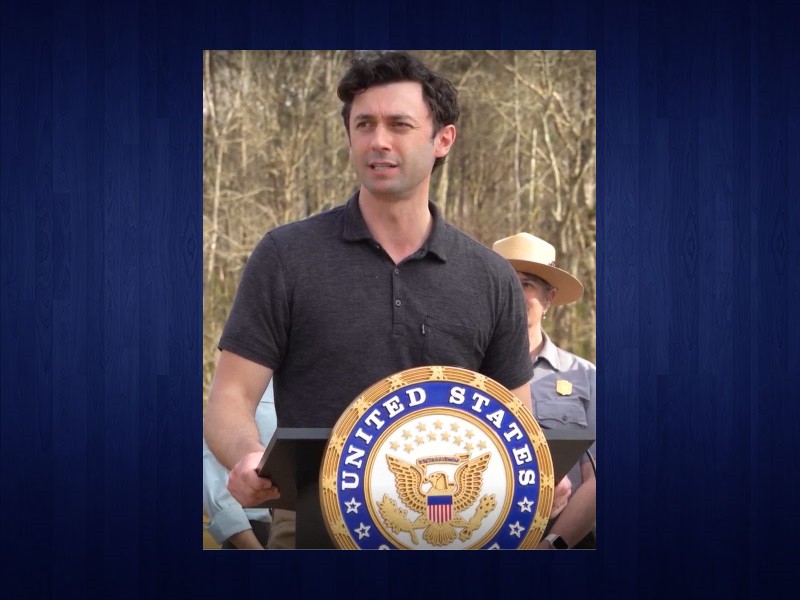U.S. Sen. Jon Ossoff’s bipartisan bill that was designed to protect and preserve the Chattahoochee River is now law.
According to Ossoff, the Chattahoochee River Act is the first of its kind. It will allow the U.S. Army Corps of Engineers to work on non-federal water projects up and down the Chattahoochee River, which supplies 70% of metro Atlanta’s drinking water according to the Georgia River Network.
The U.S. Army Corps of Engineers will be able to work on projects that will improve sediment and eroding shoreline control, restore the aquatic vegetation ecosystem and find uses for beneficial uses for dredged materials.
The Chattahoochee River Act will give priority to projects that will improve water quality or quantity or use natural hydrological features and systems. The federal share of the total project costs of each agreement shall be 80%.
“It will authorize the Army Corps to expend $90 million working with local communities and local partners to enhance water quality for projects to address erosion, and to ensure that the natural habitat is protected,” Ossoff said during a press conference. “I will continue to consult with local leadership and these folks who are working on the upkeep, maintenance and protection of Chattahoochee River every day.”
The Chattahoochee River Act will also protect essential public works and restore ecosystems along the river. These qualities are essential to preserving conditions along the river because it is closely tied to the agricultural industry and power generation in the state.
According to Chattahoochee Riverkeeper, the Chattahoochee River is one of the smallest river systems in the country that provides water supply to a major metropolitan city. The Chattahoochee River watershed has faced many threats to its chemical, physical and and biological health such as storm-water and wastewater pollution, increased water consumption, landscape changes that interrupt natural flow patterns and a changing climate.
The Chattahoochee Riverkeeper nonprofit reported that although conditions have improved in recent decades, more than 1,000 miles of waterways within the Chattahoochee River watershed do not meet water-quality standards.
“We know more than 1,000 miles of waterway within the Chattahoochee River Basin watershed do not meet water quality standards,” 4th District Congressman Hank Johnson said in a press release. “Implementing a Comprehensive Chattahoochee River Basin Restoration Plan will restore the Chattahoochee River, protect Atlanta’s drinking water, and safeguard this vital natural resource that generates more than $200 million for our local economy and thousands of jobs. I commend Sen. Ossoff and Congresswoman Bourdeaux for their leadership in preserving this resource for future generations.”
Johnson, District 13 Congressman David Scott, District 7 Congresswoman Carolyn Bordeaux, District 6 Congresswoman Lucy McBath and District 5 Congresswoman Nikema Williams introduced the bill to the House of Representatives. Sen. Raphael Warnock co-sponsored the bill.
“Clean water is essential for healthy and thriving communities,” Senator Reverend Raphael Warnock said in a press release. “While the Chattahoochee River’s water quality has improved in recent years, hundreds of miles of Chattahoochee watershed waterways still do not meet water-quality standards. I’m proud to have worked with Senator Ossoff to ensure this provision that will invest in improving, protecting, and preserving the Chattahoochee River gets signed into law.”
You can read the Chattahoochee River Act in full here.

U.S. Sen. Jon Ossoff spoke at a press release to celebrate the Chattahoochee River Act becoming a law.
http://accesswdun.com/article/2022/12/1156527/chattahoochee-river-act-sponsored-by-sen-ossoff-becomes-law
